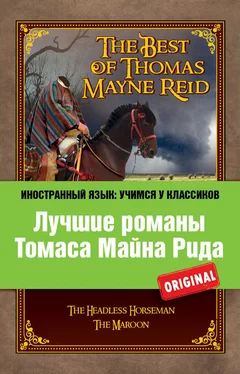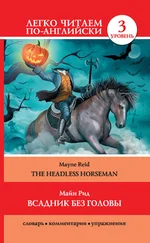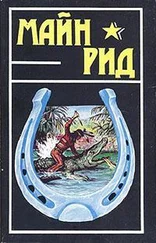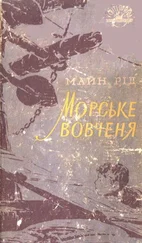To the eyes of the young creole – all her life accustomed to look upon those fair vegetable forms – there was nothing in the sight of them to beget astonishment; and the Cockney cared but little for trees. His late adventure had cured him of all inclination for a forest life; and, in his eyes, a cabbage-palm was of no more interest than a cabbage.
Smythje, however, was not unmusical. Constant attendance at the opera had, to some extent, attuned his soul to song; and he could not help expressing some surprise at the melody of the Western songsters – so much misrepresented and maligned.
In truth, upon that morning they appeared to be giving one of their grandest concerts. In the garden groves could be heard the clear voice of the banana-bird, like the tones of a clarionet, mingled with the warbling tones of the blue quit. There, too, could be seen the tiny vervain humming-bird, seated upon the summit of a tall mango-tree, trilling out its attenuated and fairy-like lay, with as much enthusiastic energy as if its little soul was poured forth in the song.
In the dark mountain woods could be heard other songsters – the glass-eye merle singing his rich and long-continued strain; and, at intervals, the wild, plaintive cry of the solitaire, littered in sweet but solemn notes, like the cadenced chaunting of a psalm – in perfect keeping with the solitude which this singular songster affects.
Above all could be distinguished the powerful voice of the New World nightingale – the far-famed mock-bird – excelling all the other music of the groves; except when at intervals the rare May-bird condescended to fling his melody upon the breeze, when the mock-bird himself would instantly interrupt his lay, and become a listener.
Add to these sounds the humming of bees, the continuous “skirling” of grasshoppers, lizards, and cicadas – the metallic cluckling of tree-frogs, the rustling of the breeze among the lanceolate leaves of the tall bamboos, and the sighing of a cascade among the distant hills – add these, and you may have some idea of the commingling of sounds that saluted the ear of Mr Montagu Smythje, as, with his fair companion, he ascended the mountain slope.
Cheerful as were the birds and brisk the bees, Smythje appeared cheerful and brisk as they. He was gay both in spirits and costume. Thoms had equipped him in one of his favourite suits; and his spirits were elevated by the prospect of his grand love triumph.
On arriving at the bottom of the ravine which conducted to the summit of the rock, Smythje showed his courage by boldly advancing to scale the steep path. He would have offered a hand to assist his companion; but in the difficult ascent he found full occupation for both; and in this ungallant manner was he compelled to climb upward.
Kate, however – who was accustomed to the path, and could possibly have given him assistance – found no difficulty in following; and in a few seconds both had arrived on the summit of the rock, and stood under the shadow of the palm.
The skeleton form, once chained to the tree, was no longer there to fray them. It had been mysteriously removed.
Mr Smythje consulted his repeater. They had arrived just in the nick of time. In five minutes the eclipse would commence; and the discs of the two great heavenly orbs would appear in contact.
It was not this crisis, however, that Smythje had chosen for the cue to his important speech. Nor yet the moment of deepest darkness; but just when the sun should begin to re-appear, and, by his renewed brightening symbolise the state of the lover’s own feelings.
He had prepared some pretty speeches which he meant to repeat by way of ushering in the declaration: how his own heart might be compared to the sun – now burning with passion – now darkened by deep despair; then once more brightening up, with rekindled hope, at the prospect of Kate making him the happiest of mortals.
He had prepared them pit-a-pat [525] the night before, and gone over them with Thoms in the morning. He had rehearsed them more than a dozen times – ending with a dress rehearsal just before starting out.
Unless the eclipse should in some way deprive him of the use of his tongue, there could be no danger of his breaking down.
With perfect confidence, therefore, in his speech-making, and equally confident of the issue, the romantic Smythje restored his repeater to its fob; and, with sun-glass in hand, awaited the coming on of the eclipse.
Chapter 13
A Proposal Postponed
Slowly, silently, and still unseen, stole the soft luminary of night towards her burning god – till a slight shadow on his lower limb betokened the contact.
“The ekwipse is commencing,” said Smythje, holding the glass to his eye. “The sun and moon are just kissing, like two lovers. How pwetty it is! Dawn’t yaw think so, fayaw Kate?”
“Rather a distant kiss for lovers, I should say – some ninety odd millions of miles between them!”
“Haw, haw! veway good, veway good indeed! And in that sawt of thing, distance dawn’t lend enchantment to the view. Much bettaw to be near, just as yaw and I are at this moment. Dawn’t yaw think so, fayaw Kate?”
“That depends upon circumstances – whether the love be reciprocal.”
“Wecipwocal! – yas, twoo enough – thaw is something in that.”
“A great deal, I should think, Mr Smythje. For instance, were I a man, and my sweetheart was frowning on me – as yonder moon seems to be upon his majesty the sun – I should keep my distance, though it were ninety millions of miles.”
Had Mr Smythje at that moment only removed the glass from his eye, and turned towards his sweetheart, he might have read in her looks that the speech just made possessed a significance, altogether different from the interpretation which it pleased him to put upon it.
“Haw, haw! veway pwetty of yaw, ’pon honaw! But yaw must wemember that yondaw moon has two faces. In that she wesembles the queetyaw called woman. Her bwight face is turned towards the sun, and no doubt she is at this moment smiling upawn the fellaw. Her frowns, yaw see, are faw us, and all the west of mankind; thawfo’ she wesembles a devoted queetyaw. Dawn’t yaw think so, fayaw Kate?”
Kate was compelled to smile, and for a short moment regarded Smythje with a glance which might have been mistaken for admiration. In the analogy which the exquisite had drawn there was a scintillation of intellect – the more striking that it was not expected from such a source. Withal, the glance was rather indicative of surprise than admiration, though Smythje evidently interpreted it for the latter – his self-esteem assisting him to the interpretation.
Before she could make reply, he repeated the interrogatory.
“Oh, yes!” answered she, the smile disappearing from her countenance; “I can well imagine, Mr Smythje, that your simile is just. I should think that a woman who loves devotedly, would not bestow her smiles on any other than him she loves; and though he were distant as yonder sun, in her heart she would smile on him all the same.”
The young Creole as she spoke lowered her eyes, no longer regarding the eclipse, but as if involuntarily directing her glance downward.
“Ah, yes!” continued she in thought, “and even if alike impossible for them ever to meet, still would her smiles be his! Ah, yes!”
For some seconds she remained silent and abstracted. Smythje, attracted by the altered tone of her voice, had taken the telescope from his eye, and turned towards her.
Observing this abstracted air, which he had often before remarked, he did not think of attributing it to any other cause than that which his vanity had already divined. Kate Vaughan was in love; and with whom but himself?
His sympathetic soul was ready to give way; and he was almost on the point of departing from the programme which he had so ingeniously traced out. But the remembrance of the pretty speeches he had rehearsed with Thoms – and the thought that any deviation from the original design would deprive him of the pleasure of witnessing the effects which they must undoubtedly produce – restrained him from a premature declaration, and he remained silent.
Читать дальше
Конец ознакомительного отрывка
Купить книгу











